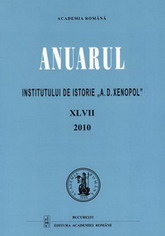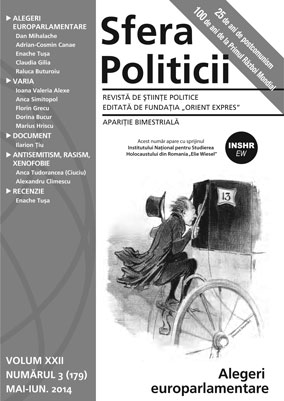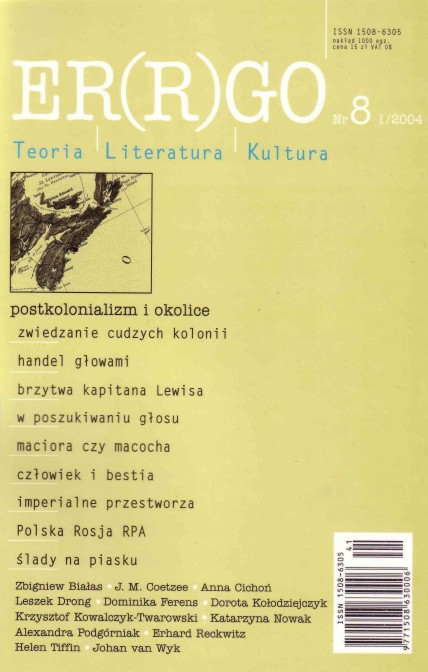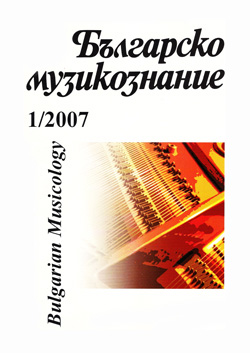


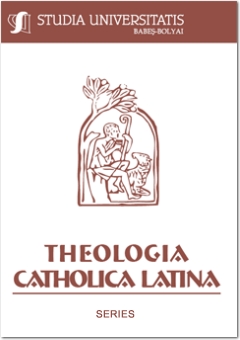
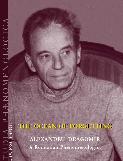
![[h'reı]](/api/image/getissuecoverimage?id=picture_2015_21372.jpg)
Keywords: [‘hu:r kobj +]; Marta Górnicka; Zbigniew Raszewski Theater Institute
A text describing and analyzing two projects for the Theater Institute conceived and directed by Marta Górnicka –[kw?r ?v w?m’?n]. The author analyzes the choral form of the play created with amateurs on the basis of a script compiled from very disparate texts – from the Bible to advertising slogans. The plays focus on women’s predicament in culture, though in Guderian-Czaplińska’s view they do not depart from the social norm, and are in no way transgressive or provocative. They do show, however, how to mess around with the social division of voices without straying past the borders of the theater.
More...
Keywords: "low" theory; Judith Halberstam; Oskar Dawicki; Joanna Rajkowska; Cezary Bodzianowski; Marina Abramović; The Artist Is Present
Jopek surveys the sphere of the negative that stretches beyond theories of performativity, drawing from the "low" theory of Judith Halberstam. Drawing from various artistic practices (Oskar Dawicki's untitled "performance," Helloby Joanna Rajkowska, Magic Cap by Cezary Bodzianowski) leads the author to define research perspectives known as negative performativity, in whose framework Jopek "reveals the site of the anti-political critical potential of failure.”
More...
Keywords: Zbigniew Raszewski Theater Institute in Warsaw; Marta Górnicka; Chorus of Women; REQUIEMACHINE; Władysław Broniewski
Marta Górnicka speaks of her concept of a chorus of individuals in Chorus of Women and Requiemmachine. She calls the language applied in her plays speech cleansed of psychological content, recalling the sound of a computer or machine. The director speaks of the process of creating the chorus and the work on creating a new actor/performer through training during rehearsal. Górnicka also speaks of the process by which the libretti for her plays were created, emphasizing that the dramaturgy always emerges from the subject she chooses. She also repeats that the dismemberment of language in her plays is primarily meant to mobilize their critical dimension.
More...
Keywords: "Performer" (the film); Oskar Dawicki
In speaking of his work on Performer, Dawicki says that film is the finest tool for modeling reality. He then explains his relationship to neo-avant-garde art, stating that he is most interested in the issue of freedom of lifestyle behind the iron curtain. Speaking of his education and interest in performance, Dawicki stresses the impact that Zbigniew Warpechowski had on him. The artist also defines his relationship with art institutions and curators. The main subject of the conversation, however, is the process of mixing fiction and reality, wherein Dawicki has made himself the object of creativity. "I try to see my situation as more amusing than terrifying,” he sums up.
More...
Keywords: Marcin Cecko; Balladyna; Krzysztof Garbaczewski; actress
The actress speaks of her work on the title role in Marcin Cecko’s Balladyna, directed by Krzysztof Garbaczewski (the Polish Theatre in Poznań, prem: 25 I 2013). Justyna Wasilewska introduces her character in three configurations: Balladyna/me/actress. This simultaneous action across three registers enables her to break away from the male paradigm and speak in her own language. In her view, the feminist patriotic discourse in the second part of the play not only relates the story of the powerlessness of a woman, but that of the human subject in general.
More...
Keywords: Jan Klata; self-representation in the media; the new political theater
The author analyzes Jan Klata’s strategies of self-representation, tracing his statements in the media. Kwaśniewska wonders what has led to Klata becoming the face of the new political theater, only to evolve into the “specialist on Polishness,” an “expert” of sorts on national issues. Following his statements, she indicates many contradictions and anachronisms. Ultimately she concludes: “Jan Klata’s images turned out to have equal media attraction, though neither was effective as a critical language.”
More...
Keywords: Jerzy Jarocki; The Dream of the Sinless; Krzysztof Warlikowski; (A)pollonia
Małgorzata Dziewulska investigates promotional strategies employed by theatres and the media discourse accompanying two premieres separated from each other by time: Jerzy Jarocki’s The Dream of the Sinless from 1979 and Krzysztof Warlikowski’s (A)pollonia from 2009. Jarocki declared his production to be “about the regaining of independence”, while Warlikowski declared his to be a “national mystery play”, which led to a dichotomy between public expectations and the actual form and theme of the play, influencing the content of reviews and ultimately – quite possibly – the play itself as well.
More...
Keywords: Apocalypsis cum Figuris; Jerzy Grotowski; Ermanno Olmi
This correspondence between Agata Adamiecka-Sitek and Leszek Kolankiewicz presents an exchange of views regarding Agata Adamiecka-Sitek’s article Grotowski, Women and Homosexuals. On the margins of “Human Tragedy”, which was published in the 112th edition of Didaskalia. The letters were not written with potential publication in mind, yet contain a number of substantive comments based on a rich bibliography (footnotes have been added at the editor’s request), not only on Jerzy Grotowski’s Apocalypsis cum Figuris and the recording of this production, but also on research methodologies applicable to the history of theatre.
More...
Keywords: Paweł Demirski; Monika Strzępka; Jolanta Janiczak; Wiktor Rubin; Marcin Cecko; Krzysztof Garbaczewski; Counterhistories; Political Theater
The author considers counterhistories projects in recent Polish theater. He describes three projects (by Paweł Demirski and Monika Strzępka, Jolanta Janiczak and Wiktor Rubin, and Marcin Cecko and Krzysztof Garbaczewski). Outlining them in brief, he presents their methods and strategies, inquiring into the expressions of subjectivity that emerge, distinguishing three models of anti-historical writing for the stage. In the author's view, "In our day, theatrical anti-historical projects realize the postulate of political art in the most insightful manner, and create the most interesting and vital movement in Polish theater.”
More...
Keywords: Apocalypsis cum figuris; Jerzy Grotowski; Teatr Laboratorium
The author analyses Jerzy Grotowski’s production Apocalypsis cum figuris (Teatr Laboratorium, Wrocław, premiere of first version: 19 VII 1968) within the context of the gender struggle. In defiance of the canonic interpretations, Adamiecka-Sitek analyses femininity and masculinity in Grotowski’s work, revealing a kind of dramatization of the misogynistic discourse of psychoanalysis as well as male homosexuality and a species of mystical eroticism.
More...
Keywords: "Performer" (the film); OSKAR DAWICKI
Dawicki presents the dark side of creating the Performer film after the completion of shooting. After a long and exhausting shooting process and postproduction, the disappointed artist completely loses interest in the final shape the work assumes. He also reminiscences on the retrospective at Art Station, where there was a screening of excerpts from the film and the Artists’ Cemetery project, whose concept was drawn from the script. He emphasises that the film made any modelling of reality an impossibility, and therefore any chance of the film being creatively “pitted against” it is squandered.
More...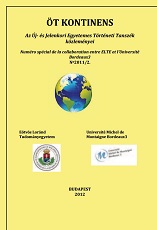
Keywords: -
this part contains an avant-propos in French ( Francois Cadilhon - István Majoros), a preface (Dávid Szabó). The volume presents the texts of a conference: Présidence hongroise 2011: regards croisés sur la place de la Hongrie dans l'Union européenne - Budapest, 10-11 juin 2011.
More...